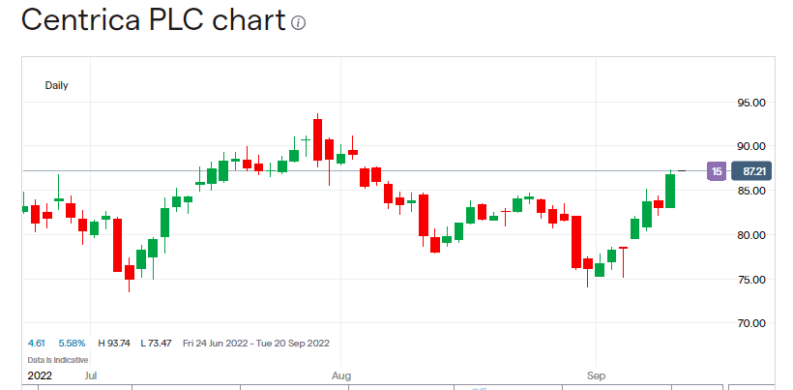Key points:
- Shell, Centrica and BP are all rising modestly on recent news
- The energy subsidy scheme will support energy demand
- The lack of a further windfall tax means profits will remain with shareholders
Shell (LON: SHEL) (NYSE: SHEL), BP (LON: BP.) (NYSE: BP) and Centrica (LON: CNA) shares are all stronger this morning as the news about the energy price cap and windfall taxes continues to sink in. The three are the major London quoted companies that could have been severely harmed by changes in those two policies. The news that there's going to be that extension of one policy and not of the other is therefore beneficial for these energy company valuations.
Of course, primary energy companies are simply coining money at present given the current high prices. But there were two weights upon those share prices. The first was whether demand would hold up. It's a pretty basic piece of economics that people do less of what rises in price. It's how markets work after all. So, volumes sold would decline given those high prices. That would impact profits of course. The other issue was government making noises about how all those profits would be confiscated – a windfall tax.
The news that is now coming out of Whitehall is that both of those potential problems are receding. Further, in a manner which boosts the earning capacity of those primary energy producers. At which point of course the share prices rise. Pehaps gradually, but thy are increasing in a modest manner.

Also Read: The Best Oil Stocks To Buy Right Now
The issue with the price cap can be a little confusing. If we consumers out here have to pay full market price for our heating then we're going to turn down the thermostat – a lot. This will reduce demand and so sales and profits of energy suppliers. This is how markets work after all. But the price cap means that we consumers are going to be subsidised in our energy usage. Sure, we'll have to pay for it in taxes or the national debt at some point but our consumption is not going to be reduced by having to pay that full market price. One effect of this is that profits at those energy suppliers will increase from where they would be without that subsidy. Again, that's just how markets work.
There was also all that talk of a windfall tax on the extra profits being made. At least so far as we know this has now been ruled out. The costs of the subsidy scheme are going to be on the general taxpayer, not paid for by taxing those extra profits. That means that they will – in time of course – flow through to shareholders. That, again in turn, means that the shares of those varied primary energy produers are more valuable than they were when we thought there might be such a windfall tax.
One further thing about the windfall tax itself. There were some numbers being thrown around of £150 billion, £170 billion, these sorts of vast sums. There never was going to be a tax of that level as that would have to be a tax on global profits – not something the UK can or does tax. So the relief is not of there not being a £150 billion tax, it's much, much, lower than that. Which is why the relatively restrained rises in Shell, BP and Centrica.




